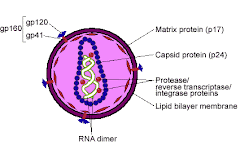"Many people view drug abuse and addiction as strictly a social problem. Parents, teens, older adults, and other members of the community tend to characterize people who take drugs as morally weak or as having criminal tendencies. They believe that drug abusers and addicts should be able to stop taking drugs if they are willing to change their behavior.
These myths have not only stereotyped those with drug-related problems, but also their families, their communities, and the health care professionals who work with them. Drug abuse and addiction comprise a public health problem that affects many people and has wide-ranging social consequences. It is NIDA's goal to help the public replace its myths and long-held mistaken beliefs about drug abuse and addiction with scientific evidence that addiction is a chronic, relapsing, and treatable disease.
Addiction does begin with drug abuse when an individual makes a conscious choice to use drugs, but addiction is not just "a lot of drug use." Recent scientific research provides overwhelming evidence that not only do drugs interfere with normal brain functioning creating powerful feelings of pleasure, but they also have long-term effects on brain metabolism and activity. At some point, changes occur in the brain that can turn drug abuse into addiction, a chronic, relapsing illness. Those addicted to drugs suffer from a compulsive drug craving and usage and cannot quit by themselves. Treatment is necessary to end this compulsive behavior."
Monday, September 3, 2007
Understanding Drug Abuse & Addiction
Blogs'FamilyCorruptionInTheBigEasy||
FamilyCorruptionInTheBigEasy: Part 2
Posted by
Boop
at
2:10 AM
![]()
Labels: destroys families, drug abuse, drug addiction, drug user
Subscribe to:
Post Comments (Atom)


















No comments:
Post a Comment